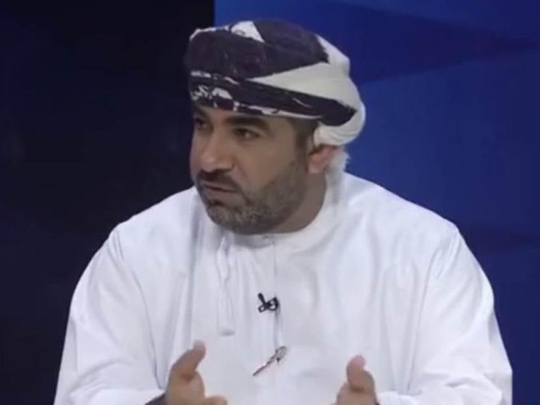
Dubai: Oman’s transport minister has disputed Iranian reports about an alleged plan to build a causeway between the sultanate and the Islamic Republic of Iran over the Strait of Hormouz.
Oman’s transport minister Dr Ahmad Al Futaisi denied on Monday the existence of any such plans, disputing statements made by Iran’s ambassador to Muscat Ali Akbar Sibeveih to journalists last week.
“Yes, I have seen the tweets and [reports] saying that consultation has started, but I assure you that as far as the Ministry of Transport and Communications is concerned, this project does not exist at the moment ... Not at all,” he told state-run Oman TV.
“But, from the Iranian side, I don’t know if such a plan exists. With the ministry it does not,” he said.
However, when contacted by Gulf News, a senior official at the Iranian embassy in Oman said that the Iranian government is waiting to formally sign the agreement on the causeway and that and consulting work for the project would start soon.
Sibaveih told private Omani radio station Al Wisal that Iran is awaiting Omani government approval for the project, and that the proposal was presented to Oman five years ago.
Last week, Sibaveih told journalists that the “peace and friendship bridge” would lead to expansion of ties “in all spheres” between the two countries, and link Iran economically to the GCC and Yemen.
The denial comes two days ahead of a high profile visit by Iranian president Hassan Rouhani to Muscat, his first to a Gulf Cooperation Council (GCC) state.
On Wednesday, Rouhani is reportedly expected to sign major deals with Oman as well as carry a message of friendship to GCC states with whom ties suffered during the rule of Rouhani’s predecessor Mahmoud Ahmadinejad.
Reports about the bridge were published in most local newspapers last week, including state newspaper Oman Daily Observer. Most reports however did not seek a comment from Omani authorities.
The story was popular on social media, too, where Omanis shared alleged project drawings and alleged images of the planned route.
Sibaveih said Iran has also proposed to build a technology college in Oman.
“Iran is ready to provide a nuclear reactor to Oman for research work if the Omani government agrees,” he added.
Iran’s ambassador to Muscat has been holding regular press meetings in which he often reveals plans to boost cooperation between the two countries. These include a $4 billion investment in the port of Duqm in the south of the country, and a massive hospital complex that includes a hotel and a 400-bed hospital, as well as two pharmaceutical factories. Those plans, too, have not yet been verified by Omani authorities.
Relations between Oman and Iran, while historically strong, have improved significantly since the election of Hassan Rouhani and since Oman allegedly hosted secret talks between the Islamic Republic and the US in an effort to end the two countries’ three-decade conflict.
Sibeveih said that Oman’s leadership was “much better compared to GCC counterparts”. “Oman has been standing by Iran’s side in hard times for the past 40 years”, said Sibeveih. “The Omani leadership has been tirelessly working for justice and peace all over the globe.”
On ties with the Gulf, Sibeveih said that his country’s ties with the UAE were improving, adding that more than 450,000 Iranians live there.
He stressed that the western powers do not want Iran’s relations to grow with Arab countries.
Sibeveih said that other GCC countries should join hands with Oman and Iran “for a better future of the region”.
Asked about the recalling withdrawal of Saudi, Emirati and Bahraini ambassadors from Qatar, he said that Iran does not want to interfere in the internal affairs of any country, and that all the GCC countries know very well that Iran does not have bad intentions towards them.
The Hormouz causeway, if it is built, would create the first ever road link between a GCC state and Iran. The strait of Hormouz is a 39 kilometre-wide body of water between the two countries that has enormous strategic value as 20 per cent of traded world oil and 35 per cent of sea seaborne traded oil pass through the strait.










